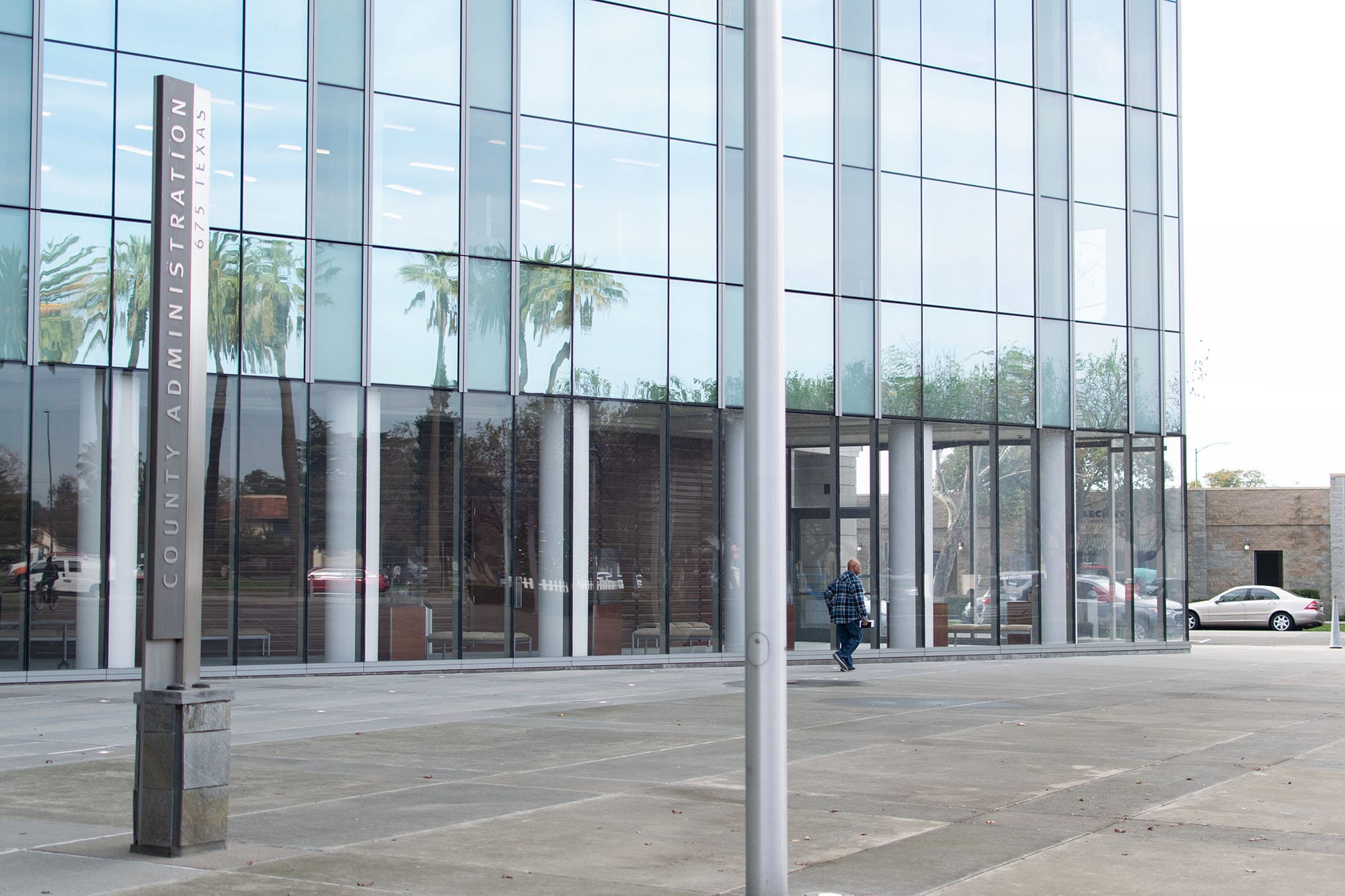VALLEJO – An agreement for court oversight of the Vallejo Police Department brought by the California Department of Justice six months ago was dismissed on Tuesday after a series of contentious exchanges with a Solano County Superior Court judge who indicated he might refuse to enforce it.
Instead, the city of Vallejo and the Justice Department agreed to the appointment of a new evaluator to oversee reform efforts who will report directly to the Justice Department rather than a judge, according to a 60-page settlement released by the city on Tuesday.
The city and Justice Department agreed to appoint Jensen Hughes, a global consulting firm, as the evaluator. The city will pay the firm an unspecified amount to oversee the reforms.
In a statement, Attorney General Rob Bonta said that the settlement demonstrates a "commitment to correcting injustices, building trust, and enhancing public safety for the people of Vallejo, by allowing the reforms decided upon in our October 2023 stipulated judgment to move forward immediately, irrespective of court approval."
"We cannot afford to be complacent," Bonta said. "The reforms laid out in the agreement are needed and necessary to continue healing the relationship between law enforcement and the community, and they are needed now."
The required reforms remain substantially the same as those in the Justice Department’s previous stipulated judgment, which would have placed Vallejo police under court supervision for the next five years. That agreement was dismissed on Tuesday at the Justice Department’s request.
The requirements include 45 reforms that the city agreed to implement in a 2020 contract with the Justice Department, but remained incomplete last year at the end of a three-year term. As of this week, the city is in substantial compliance with 27 of those reforms, according to the settlement agreement.
The outstanding reforms include the construction of a new police headquarters, which the City Council allocated $2 million towards last month, and for the city to establish a police oversight commission, whose members were appointed in February, but will require lengthy training before they can get to work.
The Justice Department entered the contract with Vallejo in 2020 after a series of police scandals raised public outcry, including the fatal police shooting of Willie McCoy. The city failed to complete the 45 reforms in the allotted three years, so in October the Justice Department filed a 67-page stipulated judgment that would have placed the department under court oversight. The judgment, also known as a consent decree, added additional required reforms, such as new restrictions on when officers can stop and search suspects.
But for the next six months, the case was bogged down in squabbling with the judge assigned to the case, Solano County Superior Court Judge Stephen Gizzi. Gizzi indicated in an order in November that he would not enforce large portions of the agreement, and might not enforce it at all. He objected to the restrictions on stops and searches and the Justice Department’s plan to appoint an evaluator who would report to the court.
“This court was never asked if it was willing or able to take on this role that could potentially last up to 10 years,” Gizzi wrote. “Yet, without authority to do so, the commitment was made on behalf of the court.”
Gizzi had scheduled a hearing in December for the city and the Justice Department to argue why he should enforce the agreement. But prior to the hearing, the Justice Department sought to disqualify Gizzi after Gizzi shared a Vallejo Sun article about his order on LinkedIn.
The LinkedIn post attracted numerous negative comments from current and former law enforcement officers. The Justice Department argued that it demonstrated that Gizzi was biased and had already made up his mind about the case before hearing arguments. But Gizzi responded that he had done nothing wrong as the post did not express any opinion about the case.
The case was temporarily assigned to a different judge. On March 18, Alameda County Superior Court Judge Michael Markman, who was temporarily sitting on assignment in Solano County, dismissed the motion to disqualify Gizzi.
“There is no evidence of bias by Judge Gizzi for or against any party or attorney involved in this case,” Markman wrote. “He has not commented or taken a position on a pending case, and the re-posted comment is a factual summary of a written order in the case that was published in a newspaper.”
Markman’s order returned the case to Gizzi and a new hearing was scheduled this week for the Justice Department to argue why he should enforce the agreement. Instead, the Justice Department requested the case’s dismissal.
The new settlement between the Justice Department and the city states that if the city does not comply with the required reforms, the Justice Department could then refile the case to return it to court oversight. However, it is not clear if the court would be more receptive to the case at that time.
Editor's note: This story has been updated to include a statement from Attorney General Rob Bonta.
Before you go...
It’s expensive to produce the kind of high-quality journalism we do at the Vallejo Sun. And we rely on reader support so we can keep publishing.
If you enjoy our regular beat reporting, in-depth investigations, and deep-dive podcast episodes, chip in so we can keep doing this work and bringing you the journalism you rely on.
Click here to become a sustaining member of our newsroom.
THE VALLEJO SUN NEWSLETTER
Investigative reporting, regular updates, events and more

Scott Morris
Scott Morris is a journalist based in Oakland who covers policing, protest, civil rights and far-right extremism. His work has been published in ProPublica, the Appeal and Oaklandside.
follow me :




